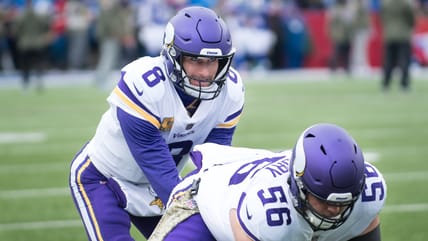Good News for the Vikings

Not every move has been popular, but Kwesi Adofo-Mensah has a vision and he’s seeing it through.
The architect of a competitive rebuild, Adofo-Mensah is trying to refuel the plane while it’s still in the air. In football terms, the GM is seeking to keep getting into the playoffs — and, ideally, actually win while there — while simultaneously building toward a prosperous Vikings future. A recent analysis from a salary cap expert suggests things are going well for the Vikings.
The GM, The Salary Cap, & The Good News for the Vikings
Right now, the Vikings are sitting on a bit below $18 million in cap space. That number grows to nearly $53.5 million next season before swelling to a truly gargantuan $165+ million in 2025 (subject to plenty of change).
Clearly, Adofo-Mensah has been at least somewhat effective in giving his team financial flexibility both now and in the future.
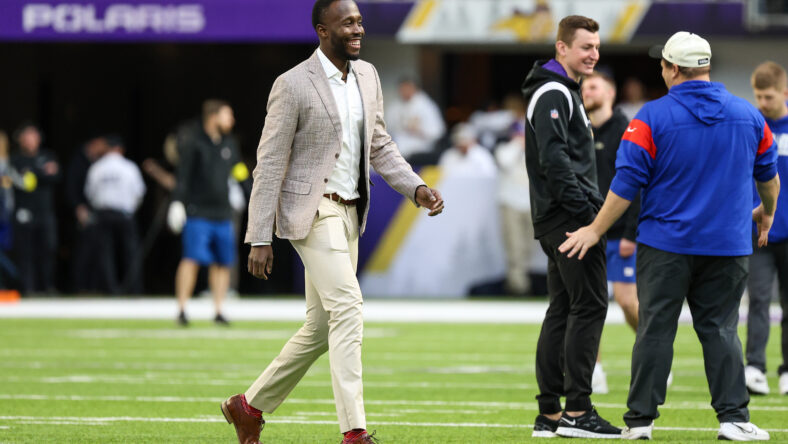
In his recent piece for PFF, Brad Spielberger largely affirms the perspective that the Vikings find themselves in a nice spot with the salary cap. In fact, the cap aficionado puts Minnesota at 6th overall in the NFL for cap health (3-year outlook).
Spielberger relies on a 5-pronged methodology that considers a roster’s top 51 players, guys still on their rookie deals, cap space estimates from 2023-25, prorated money (and thus potential dead money), and then a team’s 2023 contract-year players.
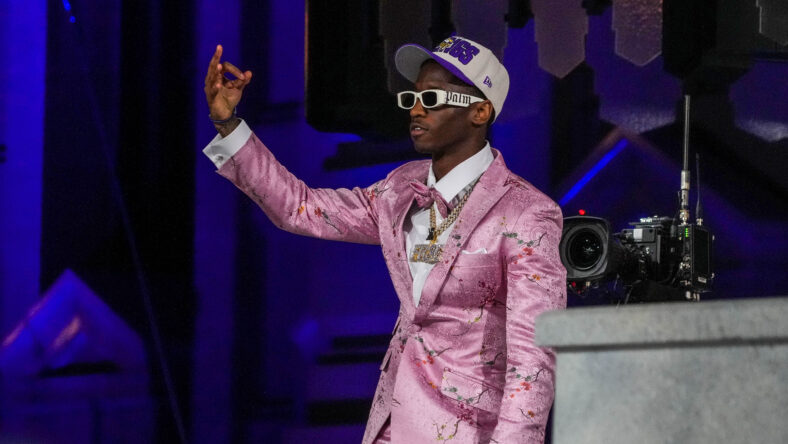
In other words, he’s considering the interplay between a team’s roster and finances in the short-to-intermediate term since those two things are constantly walking hand-in-hand. Remember: cap space is simply a means to an end. Using it wisely to add excellent players to the roster is the goal.
Or, as Spielberger notes, “having a ton of salary cap space is of no use if a roster lacks talent.” Indeed. Give me the team with a maxed-out cap and Super Bowl roster over the one that has a ton of cap room but very little meaningful talent.
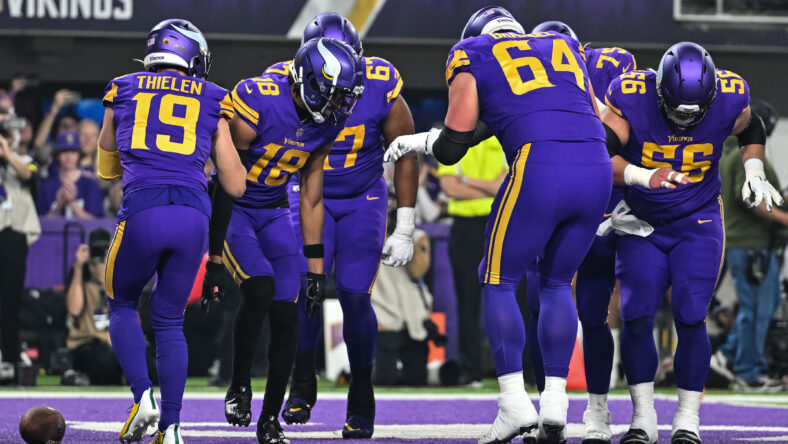
When bringing things around specifically to the Vikings, Spielberger praises the team’s “very balanced approach.”
Frankly, anything less than some semblance of balance would be a failure for Minnesota. After all, we’re discussing a GM who has (multiple times) espoused the benefits of a competitive rebuild, an intentionally murky middle ground that seeks to compete in the immediate while still building for future success. At some point, that balance may come undone as the team fully embraces contention or construction, but the present mandate is for Minnesota to have its purple cake and eat it too.
Spielberger goes on:
The Vikings still show up well here in large part because their top talent play premium positions. Wide receiver Justin Jefferson, edge defender Danielle Hunter and starting tackles Christian Darrisaw and Brian O’Neill are all among the best at their respective position groups. After trading Za’Darius Smith to the Cleveland Browns, will Minnesota find a way to extend Hunter, or will they further gut a defense that already struggled mightily in 2022?
Paying top dollar for players at premium positions is the way to go. At times, fans grew frustrated with the previous regime, handing out large deals to positions of lesser importance (like off-ball linebacker Anthony Barr or running back Dalvin Cook).
The Hunter conundrum is certainly a challenging situation. In a perfect world, the two sides figure out a mutually-beneficial solution prior to training camp. A lesser explored option is to lock-in hearty guarantees for 2023. Doing so would remedy Hunter’s modest contract (at least by NFL edge rusher standards) while maintaining the flexibility Kwesi so clearly covets.
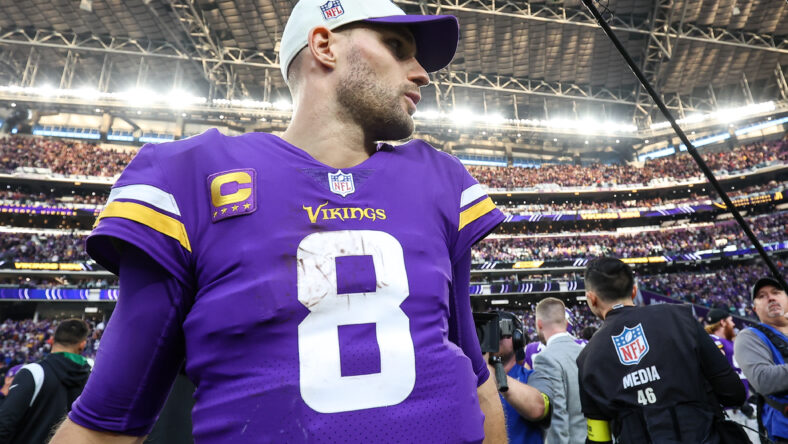
To conclude, Spielberger brings things around to Minnesota’s perpetually-controversial quarterback: Mr. Kirk Cousins. The reason controversy gets attached to Cousins is the money. If he didn’t demand large, fully-guaranteed deals, fans wouldn’t have too much reason to quibble. A situation like last season, in contrast, simply isn’t sustainable; if I’m not mistaken, Cousins had the 3rd-largest cap hit in the NFL going into the 2022 season, a remarkable reality when we consider how many more impactful players there are in the league.
In all likelihood, moving on from Cousins means embracing a rookie at the game’s most important position. The issue, of course, is that rookies aren’t sure things. Plenty of young fellas struggle, and Minnesota isn’t immune to missing on QBs in the draft (hello, Christian Ponder).
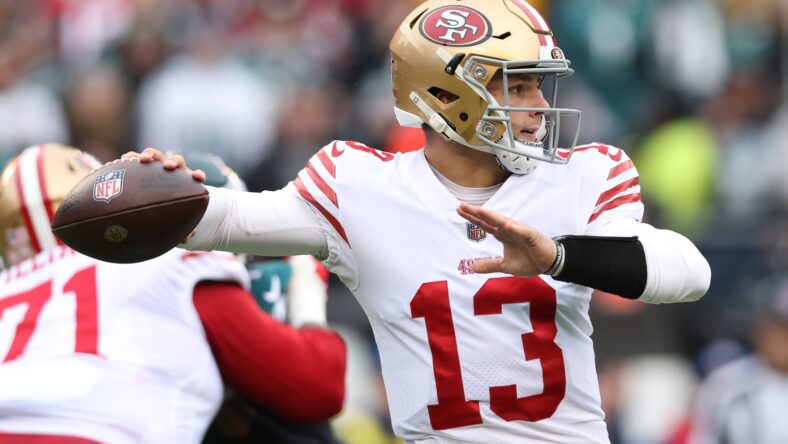
But, to be sure, leaning on a QB on his rookie contract has considerable merit, at least from a cap perspective. Layering in massive deals for players like Jefferson and Darrisaw becomes a lot more tenable if the team has a quarterback making a tiny amount (see: 49ers, San Francisco). A team’s budget can digest those hefty hits for star players if the QB is making far less than other QBs.
Nailing the quarterback selection, if that’s the route the team decides on, is thus of no little significance.
The rest of the NFC North is in notable spots in Spielberger’s piece. The Bears stand at 4th, the Lions finish 5th overall, and the Packers are at 22nd.
Editor’s Note: Information from and Over the Cap helped with this piece.

